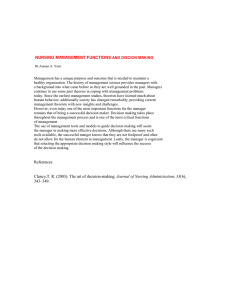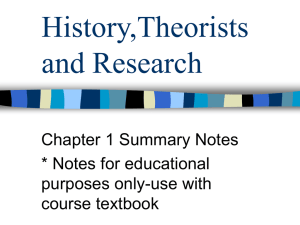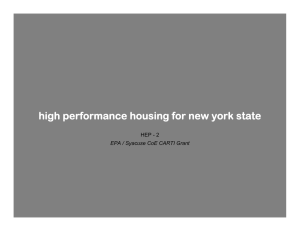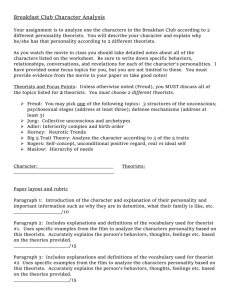Department Development Presentation PowerPoint
advertisement
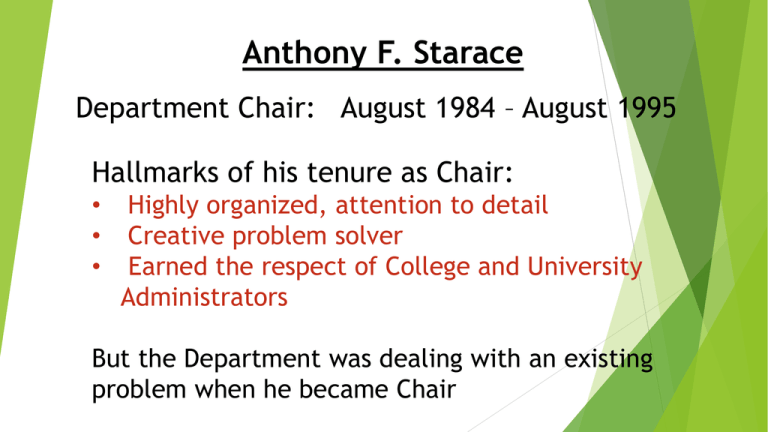
Anthony F. Starace Department Chair: August 1984 – August 1995 Hallmarks of his tenure as Chair: • • • Highly organized, attention to detail Creative problem solver Earned the respect of College and University Administrators But the Department was dealing with an existing problem when he became Chair 1984 – 29 Faculty Exper. 4 5 0 3 1 CMMP: AMOP: HEP: ASTR: Archaeometry: Arms Control: Nuclear: Physics Education: Relativity: Track Physics: Theory 3 2 5 1 1 1 1/2 1/2 1 1/2 1/2 14 Experimentalists 15 Theorists Only 18/29 had funding Spread too thin in areas No new hires since 1976 Starace Plan to Improve Department Build strength in limited number of areas: • CMMP • AMOP • Astronomy • HEP • Physics Education As retirements/resignations occur Hire in the targeted areas only • Goal is national/international impact in each research area Replace some theorists with experimentalists • Most grad students want to do exp. physics • Funding levels are higher for experimentalists. After much discussion, faculty approved the plan 1995 – 26 Faculty Exper. Theory CMMP: 5 3 AMOP: 4 2 HEP: 1 4 ASTR: 3 1 Physics Education: 1/2 1/2 Relativity: 1 Arms Control: 1 13.5 Experimentalists 12.5 Theorists Only 16/26 had funding 6 new hires since 1987 2007 – 25 Faculty CMMP: AMOP: HEP: ASTR: Exper. 10 4 4 2 Theory 2 3 0 0 20 Experimentalists 5 Theorists 23/25 have funding 23 new hires since 1987 2014 – 27 Faculty CMMP: AMOP: HEP: Exper. Theory 10 3 6 3 5 0 21 Experimentalists 6 Theorists 27/27 have funding 28 new hires since 1987 All groups are nationally/internationally competitive All groups have many individual faculty grants All groups have large scale collaborative grants It took three decades, but the (modified) Starace plan is now complete, and the Department is much stronger for it Faculty will decide where the Department goes from here, subject to input and constraints from A&S College and University administrators, and with input from such groups as NCMN, Engineering College, ..…… In summary, Anthony Starace provided the plan and the initial leadership to move the Department in a direction that permitted the development of our research groups into leaders in their fields. The same general principles will guide the Department in the future. I thank Tony for a job well done.

